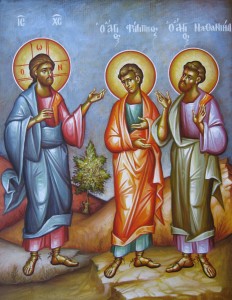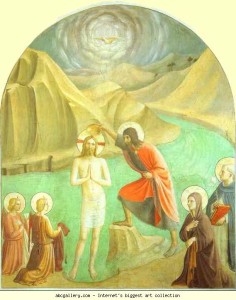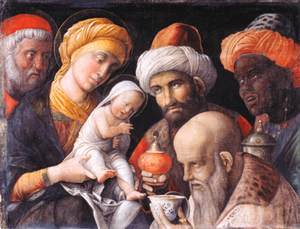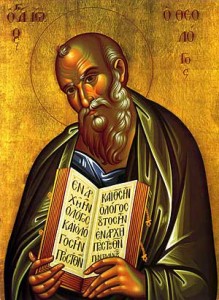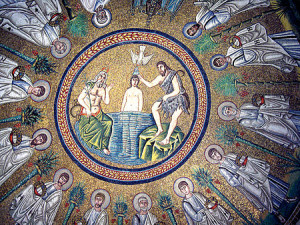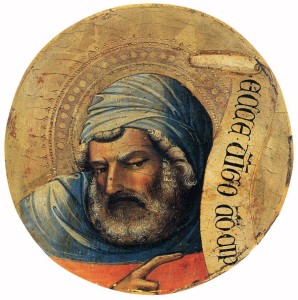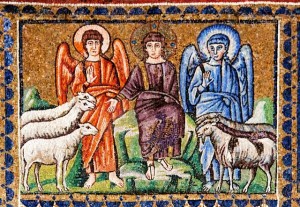Thoughts on Today’s Lessons for Jan. 25, 2015
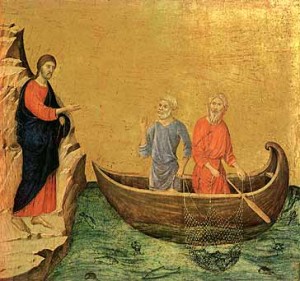
Jesus Calling the Apostles Peter and Andrew. Maesta Altarpiece of Siena, 1308-1311, Duccio de Buoninsegna. National Gallery of Art.
Today we hear the ancient story of Jonah, the reluctant prophet, who ran from God’s call to prophesy to the people of Nineveh, Jonah has just been spewed out on the beach by the giant fish that God sent to bring him back. Now he is a little more cooperative, and his prophecy has great effect: All the people of this great city accept Jonah’s words, fast and repent! And then God shows God’s forgiving mercy, and decides not to destroy the people after all. (In following verses that end the short book, Jonah is quite angry about this, but God’s mercy abides.)
Psalm: Psalm 62: 6-14
Wait for God, hope in God, trust God above all else. When all others fail, God, our strong rock and our refuge, will reward our trust in God’s power and steadfast love. Others cannot be trusted, the Psalmist tells us over and over again. “On the scales they are lighter than a breath.” But God can always be trusted to repay us all according to our good deeds.
Second Reading: 1 Corinthians 7: 29-31
No marriage, no mourning, no joy? No things? What in the world is Paul going on about this time? Paul’s letters can sound very confusing to modern ears, but we can usually hear the voice of the Spirit when we understand them in the context of their time and place. Paul was convinced that Christ was coming back very soon, bringing God’s kingdom and a new way of life. Nothing was more important than that, Paul preached. Not husbands and wives, not mourning or joy. All that is passing away, but God still abides.
Gospel: Mark 1:14-20
The ministry of Jesus begins! On Epiphany we heard Mark tell of John baptizing Jesus, and a dove from heaven declaring Jesus the son of God. Now events are moving fast. John has been arrested, and Jesus, it seems, has taken over John’s call to prophesy repentance and declare the good news of God’s kingdom. Then Jesus calls his first disciples, and the journey begins.

